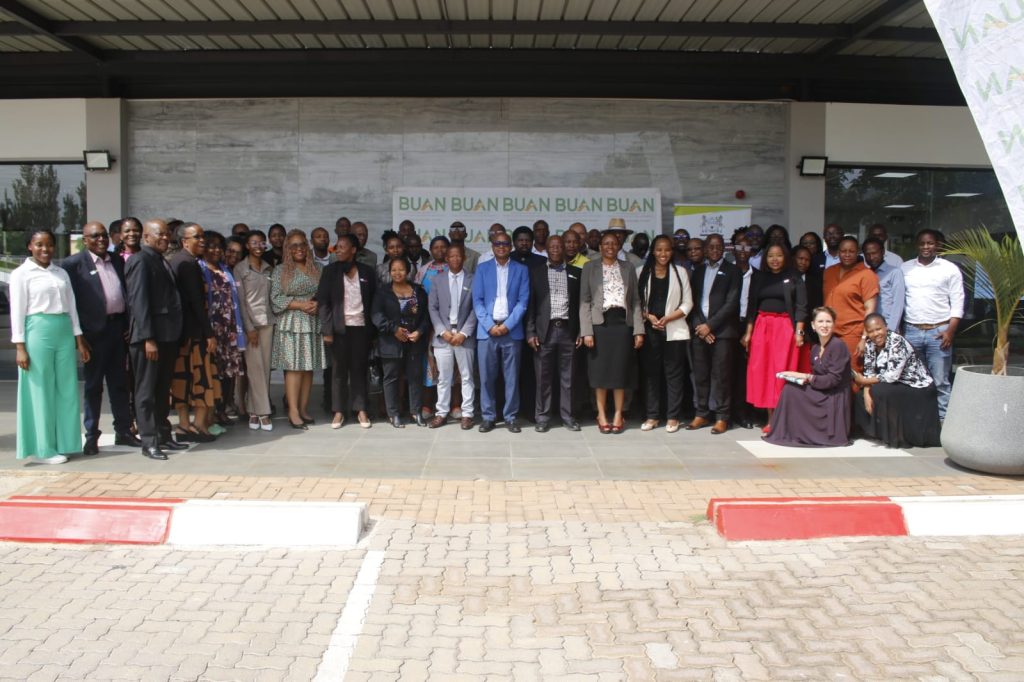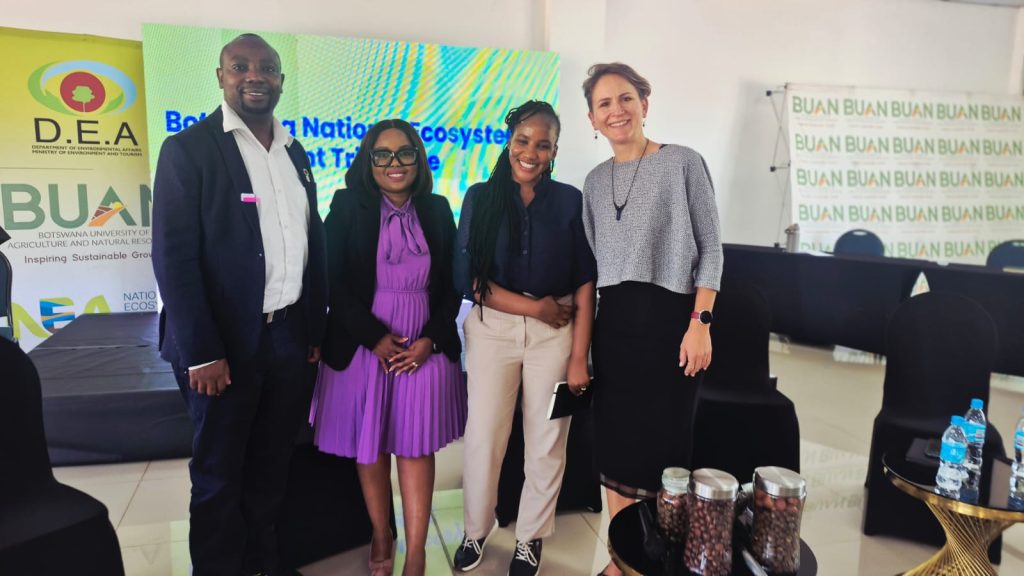Stakeholders Validate Key Messages and Findings of Botswana’s Draft National Ecosystem Assessment Technical Report
- News
With inputs from the Botswana National Ecosystem Assessment Communications Team

Diverse stakeholders gathered in Gaborone, Botswana, on 6-9 October 2025 to validate the key messages and findings of the second-order draft of the national ecosystem assessment technical report. The workshop was guided by the Biodiversity and Ecosystem Services Network’s (BES-Net) Trialogue approach, which goes beyond bridging the traditional science-policy gap and brings together the three communities of science, policy and practice, including the private sector, non-governmental organisations (NGOs), and Indigenous and local knowledge holders.. Among the participants were government representatives, policy makers, researchers, traditional and local knowledge holders, including Dikgosi (tribal chiefs), persons with disabilities, youth, civil society, and private sector actors. The national Trialogue provided a platform for stakeholders to affirm their commitment to shared ownership and responsibility for the key messages and findings of the draft assessment report. The need for synergistic collaboration, rather than isolated efforts, was agreed by stakeholders as an essential approach to tackle the complex and interconnected challenges faced by the country’s ecosystems.
The event was organized by the Botswana University of Agriculture and Natural Resources in partnership with the Department of Environmental Protection in the Ministry of Environment and Tourism. Technical support was provided by the BES-Net consortium, comprising UNEP-WCMC’s National Ecosystem Assessment Initiative (NEA Initiative) and UNESCO Local and Indigenous Knowledge Systems (LINKS).
Bridging science, policy and practice to support Botswana’s national development goals

Harnessing innovative facilitation techniques, the Trialogue supported the participants in cultivating meaningful dialogue and collectively identifying priority actions based on the relevance and feasibility of the assessment’s key messages. This approach enabled inclusive and practical discussions among stakeholder groups on how to contribute to the formulation of more evidence-informed policy decisions at the national level. This is an essential step in ensuring that the assessment can guide and support Botswana’s new national development goals and policy frameworks such as the forthcoming transitional National Development Plan 12, the National Biodiversity Strategy and Action Plan and Botswana’s Vision 2036.
The Trialogue reinforced the importance of dialogue among the science, policy and practice communities in Botswana. The event created a space for practitioners to share the challenges they face on the ground and for policymakers to share insight into real-world decision-making. Proactive participation of Dikgosi and community practitioners deepened the assessment’s inclusiveness and robustness. Their insights grounded the assessment in local realities and strengthened the policy options to better reflect traditional stewardship and community-based ecosystem management practices.
“Walking the Talk” Panel Discussion and Trialogue Clinics

The final day featured a “Walking the Talk” High-Level Panel Discussion. The session was attended by Professor Patricia Kefilwe Mogomotsi, Acting Permanent Secretary of the Ministry of Environment and Tourism, who applauded all stakeholders for their valuable contributions and collaborative spirit. Prof. Mogomotsi emphasized the need for collective and coordinated action in implementing the assessment’s recommendations.
She further encouraged academic institutions to engage proactively in shaping policy and legislation from the outset, reinforcing a spirit of partnership and progress.
The final day also included Trialogue Clinics – interactive sessions where participants worked in groups to explore thematic areas and provided additional depth for the chapter authors of the assessment report. The groups were divided into:
- Indigenous Knowledge vs. Traditional Knowledge
- Waste Management at Local District Level
- Disaggregated Groups – Youth and Vulnerable Communities
- Valued Addition and Livelihoods Support for Communities
Insights from this session will help enrich the assessment’s chapters, ensuring that recommendations are inclusive, context-specific, and grounded in both local realities and national priorities.
Moving Forward Together
Botswana is currently in the advanced phase of the expert evaluation stage of the national ecosystem assessment process. Engaging policymakers and practitioners in the review of the draft of the technical report can help ensure its policy relevance. The credibility and legitimacy of the assessment rely on the meaningful involvement of a wide range of stakeholders and the consideration of different knowledge systems including traditional and local knowledge. The national ecosystem assessment process provided a platform for engagement between diverse knowledge holders to co-produce the best available knowledge on biodiversity and ecosystems.
As the assessment moves towards completion, participants also identified the need to effectively disseminate and advocate for the assessment’s key messages and findings via awareness campaigns aimed at policymakers and other stakeholders.
Following the expert evaluation stage, the assessment’s technical report and the summary for policymakers will be submitted to the Government for formal approval, paving the way for broad dissemination and use of findings to inform decision and policymaking in the country.